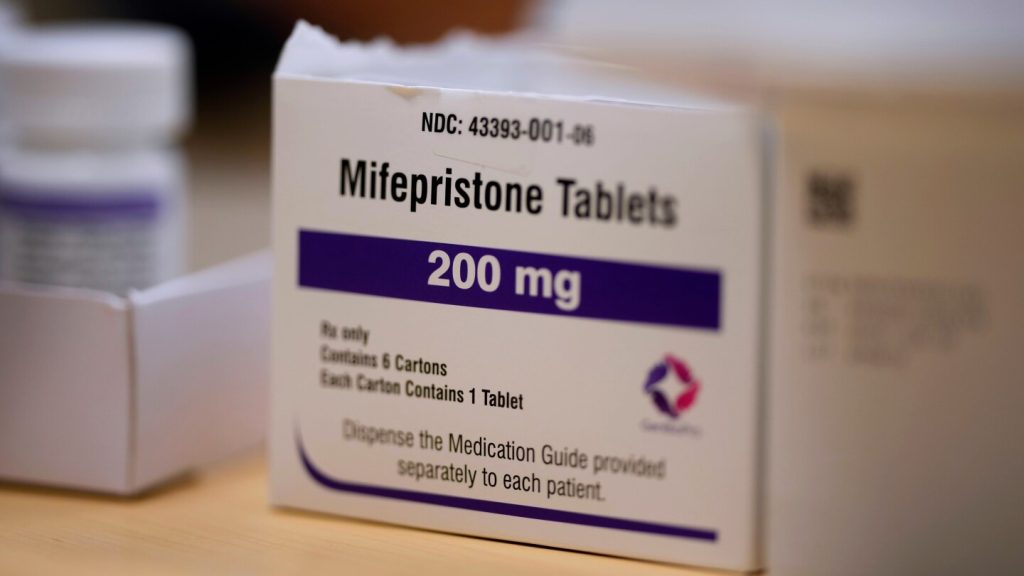Listen to the article
Florida Attorney General Sues Planned Parenthood Over Abortion Pill Safety Claims
Florida’s attorney general has launched a lawsuit against Planned Parenthood, accusing the organization of “misrepresenting the safety” of abortion pills in what represents the latest legal challenge targeting medication abortion in post-Roe America.
Filed Thursday in a state court in Santa Rosa County, Attorney General James Uthmeier’s complaint alleges the reproductive health organization is “making false claims about the safety of abortion drugs,” specifically challenging Planned Parenthood’s assertion that abortion medication is “safer than Tylenol.”
The lawsuit claims Planned Parenthood is violating Florida’s law against deceptive and unfair trade practices. In an aggressive legal approach, the complaint also characterizes the organization’s activities as “racketeering,” a charge originally designed to combat organized crime.
“Planned Parenthood and its Florida operations mislead women about the critical and undeniable risks of a chemical abortion by deceptively claiming these powerful drugs are less risky than everyday pain medication,” the complaint states.
The legal action seeks approximately $350 million in damages and requests the court consider severe sanctions against Planned Parenthood, including forcing the organization to sell property, prohibiting it from providing abortions, or potentially dissolving the organization entirely.
Planned Parenthood officials swiftly responded, characterizing the lawsuit as a “politically motivated attack” designed to further restrict abortion access in Florida, where most abortions are already banned after six weeks of pregnancy—before many women even realize they’re pregnant.
“Anti-abortion lawmakers and officials are relentless in their effort to end access to all abortion care, and to stop patients from getting accurate medical information. We will continue to be just as relentless in our effort to defend access to this safe, effective care,” said Susan Baker Manning, general counsel for the Planned Parenthood Federation of America. “See you in court.”
The Florida lawsuit mirrors a similar action filed by Missouri’s attorney general in July, with the next hearing in that case scheduled for February.
Constitutional law professor Caroline Mala Corbin of the University of Miami School of Law noted the lawsuit represents an expected progression in efforts to restrict abortion access. “If this one succeeds, it may become a model for other states. And if it fails, no doubt they’ll come up with something else,” Corbin said.
The legal challenge comes as abortion opponents increasingly focus on restricting access to medication abortion, which now accounts for nearly two-thirds of all abortions in the United States. The two-drug regimen typically uses mifepristone and misoprostol, medications that remain accessible via telehealth in some states even as others enforce total bans.
Since the Supreme Court overturned Roe v. Wade in 2022, twelve states now enforce total abortion bans, while four more prohibit the procedure after approximately six weeks. This landscape has made medication abortion an increasingly critical method of reproductive healthcare, even in states with restrictive laws.
Last year, the Supreme Court unanimously preserved access to mifepristone, ruling abortion opponents lacked legal standing to challenge the FDA’s approval of the medication. However, Republican attorneys general are renewing their legal efforts after the case returned to a lower court in Texas, arguing that mifepristone is too dangerous for telehealth prescriptions and that the FDA should tighten access.
Medical research contradicts these safety claims. Studies have consistently found that mifepristone and misoprostol are generally safe and effective, completing abortions in more than 97% of cases. Medical organizations supporting mifepristone’s availability compare its safety profile to “ibuprofen, which more than 30 million Americans take in any given day.”
FDA data shows that since mifepristone’s approval in 2000, approximately 6 million patients have taken the drug. A 2021 review of agency records identified just 13 deaths likely related to the medication—representing about 0.00027% of patients.
Planned Parenthood’s informational materials state: “Medication abortion is very safe. In fact, it’s safer than many other medicines like penicillin, Tylenol, and Viagra. Serious problems are rare, but like all medicines, there can be risks.”
The Florida case represents the latest front in the ongoing national battle over abortion access, with medication abortion increasingly becoming the central focus of legal challenges.
Fact Checker
Verify the accuracy of this article using The Disinformation Commission analysis and real-time sources.




5 Comments
This lawsuit is the latest in a series of legal challenges targeting medication abortion, which has become a key battleground in the post-Roe landscape. The outcome could set an important precedent.
This lawsuit seems to be part of a broader effort to restrict access to abortion medication nationwide. It will be interesting to see how the courts weigh the safety claims made by both sides.
Agreed, the debate around the safety of abortion pills has become highly politicized. It’s important to rely on objective medical evidence when evaluating these claims.
While I understand the state’s concerns over medication safety, characterizing Planned Parenthood’s activities as ‘racketeering’ seems like an exaggerated legal tactic. This case could have significant implications for reproductive healthcare access.
The ‘racketeering’ claim does seem like a stretch. I’m curious to see how the courts respond to that particular allegation in the lawsuit.